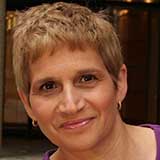 They came from across the country, ranging in age from 10 months (a baby nephew) to their mid-70s. Fathers, mothers, sisters, brothers, wives, and husbands—around 20 individuals in total. Their only unifying feature was belonging to the unenviable club of having had to grieve a relative (for this group, a doctor) who had died through suicide or sudden accidental death.
They came from across the country, ranging in age from 10 months (a baby nephew) to their mid-70s. Fathers, mothers, sisters, brothers, wives, and husbands—around 20 individuals in total. Their only unifying feature was belonging to the unenviable club of having had to grieve a relative (for this group, a doctor) who had died through suicide or sudden accidental death.
The group met for the first time at the Royal Society of Medicine. They waited nervously, as if in a doctor’s surgery, but once the dialogue started, connections began to be made. Two families shared the same (unusual) surname; two of the deceased had the same first name; two died on the same day; and a further two had chosen to kill themselves in the same way. That unconscious web of communication, which connects doctors’ past, present, and even future, came into play.
I had wanted to set this group up for a while. As the head of a physician health service, the Practitioner Health Programme (PHP), for many years I had been approached by bereaved relatives of doctors asking for help. I had linked families together and found that it allowed them, in some small way, not to feel so alone. Now they were together: disparate individuals and families found through word of mouth, via relatives of patients at PHP, or through social media.
The group members talked about their guilt and grief, revisiting the unanswerable question, “what if.” They also shared their anger at how they felt “the system” had contributed to the death of their loved one. They made real what research has told us: that suicide is more common among doctors (especially women) than in other professional groups; that doctors suffer from personal, professional, and institutional stigma when trying to seek help for mental health problems; and that complaints are a substantial contributing factor in doctors’ suicides.
For many of the deceased, it was the receipt of a complaint (even a trivial one) that had led to rumination, shame, and depression. Often unsupported, young and older doctors alike had to face the impact of a complaint alone. Uncertain how long it would take to be resolved (or whether it ever would), they suffered over it and exaggerated the likelihood that they might lose their careers and livelihoods. Instead they lost their lives.
Beginning as strangers, the members of the group left hugging and embracing each other, sharing contact details and wanting to meet again, which they will on 5 October at the end of the Wounded Healer Conference.
A podcast has been made and PHP has agreed to bring together an album of remembrance for doctors and medical students who have died in this manner. Hopefully, it will be an album that becomes harder to fill.
Clare Gerada is the medical director of the Practitioner Health Programme and GP Health Service. She will be chairing the first day of the International Practitioner Health Summit 2018: The Wounded Healer, 4-5 October 2018.
If anyone wishes to attend the next meeting of this group, email Clare Gerada at clare.gerada@nhs.net
Competing interests: Nothing further to declare.
